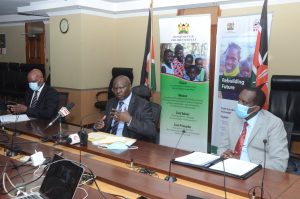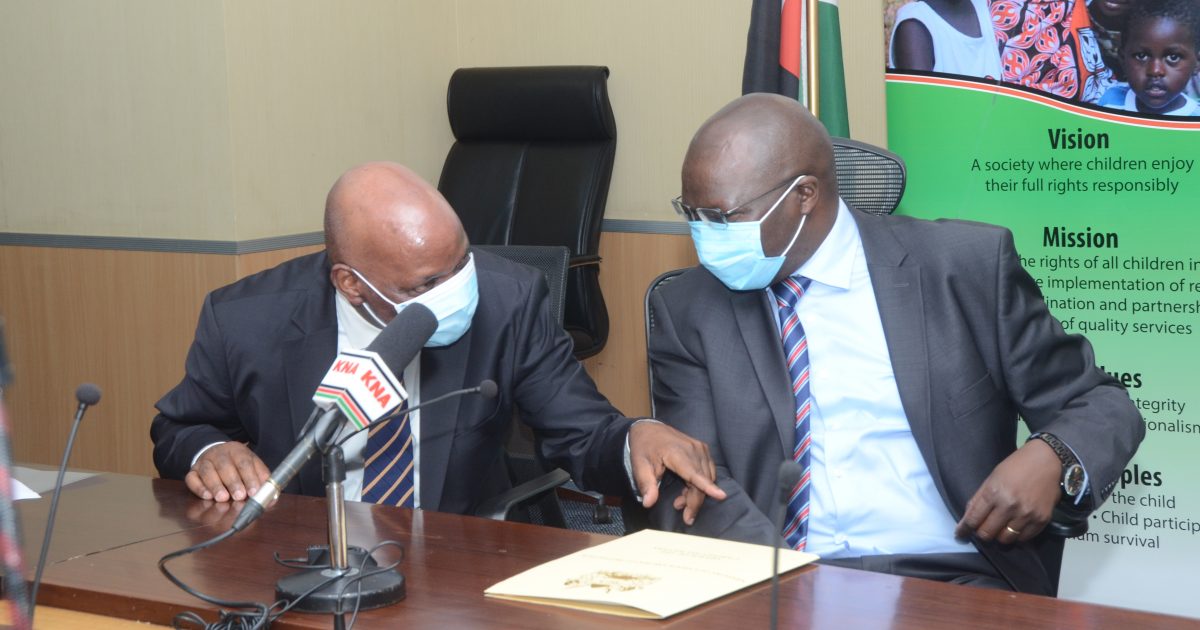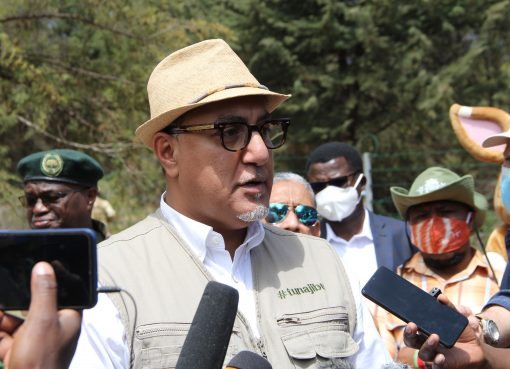Women and girls have been ranked as the most affected victims of human trafficking globally, an issue that has prompted the government to put on notice the perpetrators of human trafficking in Kenya.
Labour and Social Protection CS Simon Chelugui said according to statistics women have been ranked at 49 percent while girls are at 23 percent globally, noting that the most prevalent forms of trafficking in the country are for labour and sexual exploitation.
Chelugui said the crime of trafficking in persons is not only a cross-border phenomenon but also happens within the country and singled out child trafficking from the rural areas to urban areas for domestic work.
“From July 2019 to date, 612 cases of child labour have been reported on the Child Protection Information Management System,” said Chelugui.
He said globally people are trafficked for sexual exploitation, forced labour, forced begging, forced marriage, child sale and child soldiers, removal of organs and other forms of abuses and cautioned Kenyans against falling prey to trafficking.
Chelugui at the same time put on notice individuals who are bringing beggars on the streets of Nairobi saying that his ministry has noticed the worrying return of those begging on the streets especially children, whom he termed as vulnerable to both internal and cross-border trafficking.

The CS who was flanked by the Ministry’s Chief Administrative Secretary Patrick Ole Ntutu and the Principal Secretary Nelson Marwa was speaking Thursday during the commemoration of the World Day Against Trafficking in Persons at his Boardroom at NSSF Building which was conducted virtually due to the Covid-19 pandemic.
The theme for this year’s celebrations is, “Committed to the cause-working on the frontline to end human trafficking’ which focuses on the first responders to human trafficking, those working in different sectors to identify, support, counsel and seek justice for victims of trafficking and challenging the impunity of traffickers.
He however, noted that the job losses occasioned by the pandemic has increased the number of people falling below the poverty line thereby increasing their vulnerability to trafficking.
“We have noted that some of the measures introduced to contain the spread of Covid-19 are exposing victims of trafficking to further exploitation because some of these measures have led to limited access to services as most victim assistance programmes have scaled down operations,” he added.
The CS said the Covid -19 pandemic has also made it difficult to identify victims, has also increased child sexual exploitation in form of trafficking and online activities among the young people and their vulnerability to online recruitment.
He said even though Kenya has been identified as a source, transit and destination country for cross border trafficking, the government has made major strides in this fight against the vice while being guided by the global Action Plan parameters of prevention, protection, prosecution and partnerships.
The CS announced that his ministry has rescued over 1,500 victims of trafficking of various nationalities, besides managing the convictions of 61 people with numerous cases going on in various courts in the country.
“The Ministry launched the Kenya Labour Migration Information Website in January last year in conjunction with the International Organization for Migration to streamline labour migration in order to ensure it is safe and orderly,” said Chelugui.
He at the same time assured that the ministry vets all local private employment recruitment agencies by an inter-ministerial committee to ensure Kenyans going to work in foreign markets do so within the law and are well protected.
Chelugui said the ministry will review the counter trafficking in Person Act 2012 to align it to the constitution as well as address the new dimensions in the trafficking in persons.
“We have identified the need to establish a government-run shelter for victims of trafficking rather than the current situation where most victims of counter trafficking are held in cells and at times prisons,” he added.
The CS thanked the government of the United States of America, the United Kingdom and other development partners for their continuous support and technical assistance to eradicate trafficking of persons in the country.
By Bernadette Khaduli




